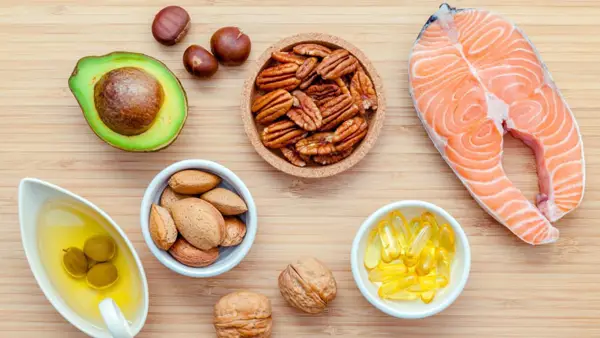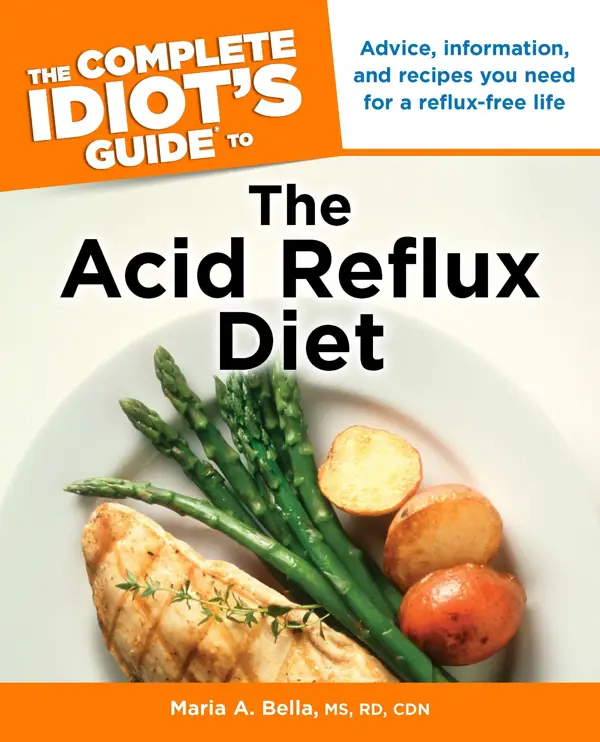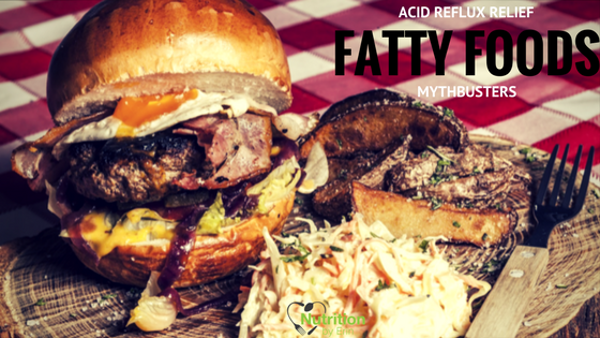Table of Contents
- Introduction to Acid Reflux
- Understanding Fatty Foods
- How Fatty Foods Contribute to Acid Reflux
- Symptoms of Acid Reflux Caused by Fatty Foods
- Managing Acid Reflux with Dietary Changes
- Preventing Acid Reflux Triggered by Fatty Foods
- Conclusion
Introduction to Acid Reflux
Acid reflux is a common digestive disorder that occurs when stomach acid flows back up into the esophagus, causing a burning sensation in the chest and throat.
Understanding Fatty Foods
Fatty foods are high in unhealthy fats, such as saturated and trans fats, that can increase inflammation in the body and lead to various health problems.
Understanding Fatty Foods and Acid Reflux
Fatty foods can be a common trigger for acid reflux, a condition in which stomach acid flows back up into the esophagus causing discomfort and sometimes pain.
It is important to understand that fatty foods can relax the lower esophageal sphincter, the muscle that acts as a barrier between the stomach and the esophagus, allowing stomach acid to flow back up more easily.
To reduce the risk of acid reflux, it is recommended to avoid or limit consumption of high-fat foods such as fried foods, fatty cuts of meat, butter, cheese, and creamy sauces.
Instead, opt for healthier fats found in avocados, nuts, seeds, and fatty fish like salmon. These fats are less likely to trigger acid reflux and provide important nutrients for overall health.
By making small changes to your diet and being mindful of the types of fats you consume, you can help manage acid reflux symptoms and improve your overall well-being.

How Fatty Foods Contribute to Acid Reflux
Fatty foods are known to contribute to acid reflux, a condition in which stomach acid flows back up into the esophagus. This can cause a burning sensation in the chest, known as heartburn, as well as other symptoms such as nausea, bloating, and regurgitation.
One of the main reasons fatty foods can trigger acid reflux is because they slow down the emptying of the stomach, allowing more time for acid to build up and reflux into the esophagus. Additionally, fatty foods can relax the lower esophageal sphincter, the muscle that normally prevents stomach acid from flowing back up.
Common fatty foods that can worsen acid reflux include fried foods, high-fat meats, full-fat dairy products, and creamy sauces. It is important for individuals with acid reflux to limit their intake of these foods and opt for healthier, low-fat alternatives instead.
By making dietary changes and avoiding fatty foods, individuals can help manage their acid reflux symptoms and improve their overall digestive health.

Symptoms of Acid Reflux Caused by Fatty Foods
Common symptoms of acid reflux triggered by fatty foods include heartburn, regurgitation, chest pain, and difficulty swallowing.
Acid reflux, also known as heartburn, can be triggered by consuming fatty foods. Symptoms of acid reflux caused by fatty foods may include:
- Heartburn - a burning sensation in the chest that may radiate to the neck or throat
- Regurgitation - the feeling of acid backing up into the throat or mouth
- Difficulty swallowing
- Chronic cough or sore throat
- Feeling of a lump in the throat
- Nausea or vomiting
If you experience any of these symptoms after consuming fatty foods, it is important to consult a healthcare professional for proper diagnosis and treatment.

Managing Acid Reflux with Dietary Changes
To manage acid reflux caused by fatty foods, it is essential to make dietary changes, such as reducing the intake of fried foods, processed meats, and high-fat dairy products.
If you suffer from acid reflux, making dietary changes can help alleviate symptoms and improve your overall health. One of the main triggers for acid reflux is consuming fatty foods, which can relax the lower esophageal sphincter and allow stomach acid to flow back up into the esophagus.
To help manage acid reflux, it is important to avoid or limit the consumption of fatty foods such as fried foods, greasy snacks, and high-fat meats. Instead, focus on incorporating more lean proteins, whole grains, fruits, and vegetables into your diet.
Some examples of acid reflux-friendly foods include skinless poultry, fish, whole grain breads and cereals, and non-citrus fruits like bananas and apples. It is also beneficial to eat smaller, more frequent meals and avoid eating close to bedtime to help reduce symptoms of acid reflux.
By making these dietary changes and paying attention to the foods that trigger your acid reflux symptoms, you can effectively manage and reduce the discomfort associated with this condition.

Preventing Acid Reflux Triggered by Fatty Foods
To prevent acid reflux triggered by fatty foods, it is recommended to eat smaller meals, avoid lying down immediately after eating, and opt for healthier fats, such as avocados and nuts.
Acid reflux, also known as heartburn, can be triggered by consuming fatty foods. Here are some tips to help prevent acid reflux caused by fatty foods:
- Avoid consuming high-fat foods such as fried foods, processed foods, and fatty meats.
- Opt for lean meats, fish, and poultry instead of high-fat options.
- Avoid eating large meals, especially before bedtime, as this can increase the likelihood of acid reflux.
- Limit your intake of spicy foods, caffeine, and alcohol, as these can also trigger acid reflux.
- Try to eat smaller, more frequent meals throughout the day rather than a few large meals.
By following these tips and making healthier food choices, you can help prevent acid reflux triggered by fatty foods.

Conclusion
In conclusion, fatty foods can exacerbate acid reflux symptoms and negatively impact your digestive health. By making conscious dietary choices and prioritizing a balanced diet, you can effectively manage and prevent acid reflux caused by fatty foods.
Key Takeaways
- High-fat foods can trigger acid reflux symptoms.
- Dietary changes, such as reducing fried and processed foods, can help manage acid reflux.
- Eating smaller meals and avoiding lying down after eating can prevent acid reflux triggered by fatty foods.
FAQ
Q: Can fatty foods worsen acid reflux symptoms?
A: Yes, fatty foods can relax the lower esophageal sphincter and contribute to acid reflux.
Q: How can I prevent acid reflux triggered by fatty foods?
A: To prevent acid reflux, try to avoid high-fat and fried foods, eat smaller meals, and maintain good posture after eating.



Recent Comments